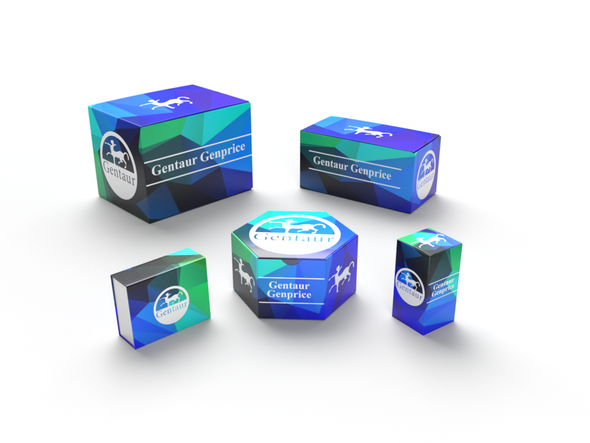740
Mouse Glyoxalase domain-containing protein 4 (GLOD4) ELISA Kit | AE60954MO
- SKU:
- 740-AE60954MO
- Availability:
- Usually ships in 5 working days
Description
Mouse Glyoxalase domain-containing protein 4 (GLOD4) ELISA Kit | AE60954MO | Gentaur UK, US & Europe Distribution
Species Reactivity: Mouse (Mus musculus)
Abbreviation: GLOD4
Alternative Name: C17orf25; CGI-150; HC71;
Application: ELISA
Range: 15.6-1000 pg/mL
Sensitivity: 6.2 pg/mL
Intra-Assay: ≤5.8%
Inter-Assay: ≤9.2%
Recovery: 1, 04
Sample Type: Serum, Plasma, Other biological fluids
Detection Method: Sandwich
Analysis Method : Quantitive
Test Principale: This assay employs a two-site sandwich ELISA to quantitate GLOD4 in samples. An antibody specific for GLOD4 has been pre-coated onto a microplate. Standards and samples are pipetted into the wells and anyGLOD4 present is bound by the immobilized antibody. After removing any unbound substances, a biotin-conjugated antibody specific for GLOD4 is added to the wells. After washing, Streptavidin conjugated Horseradish Peroxidase (HRP) is added to the wells. Following a wash to remove any unbound avidin-enzyme reagent, a substrate solution is added to the wells and color develops in proportion to the amount of GLOD4 bound in the initial step. The color development is stopped and the intensity of the color is measured.
Product Overview: C17orf25 is divided into 10 exons and 9 introns, spanning 23 kb of genomic DNA. The mRNA expression of C17orf25 was decreased in hepatocellular carcinoma samples as compared to adjacent noncancerous liver tissues from the same patients. The transfection of C17orf25 into the hepatocellular carcinoma cell SMMC7721 and overexpression could inhibit the cell growth. The above results indicate that C17orf25 is a novel human gene, and the cloning and preliminary characterization of C17orf25 is a prerequisite for further functional analysis of this novel gene in human hepatocellular carcinoma.The human C17orf25 gene is one of thirteen genes cloned from a region displaying a high score of loss of heterozygosity within chromosome 17p13.3 in human hepatocellular carcinoma in China.
Stability: The stability of ELISA kit is determined by the loss rate of activity. The loss rate of this kit is less than 5% within the expiration date under appropriate storage condition. The loss rate was determined by accelerated thermal degradation test. Keep the kit at 37°C for 4 and 7 days, and compare O.D.values of the kit kept at 37°C with that of at recommended temperature. (referring from China Biological Products Standard, which was calculated by the Arrhenius equation. For ELISA kit, 4 days storage at 37°C can be considered as 6 months at 2 - 8°C, which means 7 days at 37°C equaling 12 months at 2 - 8°C) .










